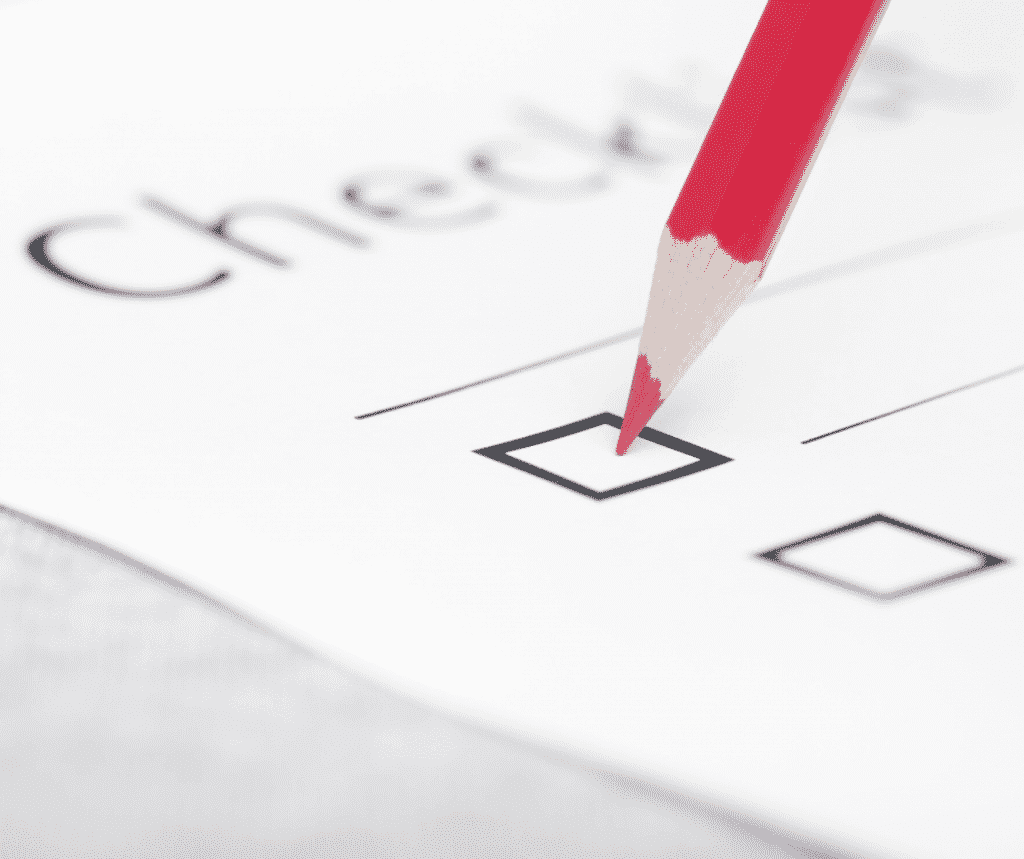Trying to stay sober is not always an easy goal when it feels like there are many obstacles in your way that hinder recovery. Pause for a second to think about what obstacles are in your way at the moment.

There are many stumbling blocks you may encounter in your daily life, and not all of those feel like they are in your control. Those stumbling blocks can affect your dating life, your family ties, and even your job. Not every barrier has a simple answer to overcome it, but this checklist can help give you a start on your sober journey.
-
Keep To A Schedule
Keeping to a regular schedule helps your body anticipate what comes next in the day. Rather than a chaotic start that leaves you feeling frazzled, write down what you want to achieve in the day.
Those goals can be as simple as journaling for a few minutes and drinking coffee before officially starting the day. The little habits will start to be a staple of daily life and become something you can always turn to when life feels disorganized or chaotic.
A sobriety app or a planner can help you set up goals you want to keep throughout your day. Through an app, you can set digital reminders to keep you on track and celebrate little victories.
-
Write Down Triggers
For many struggling with addiction, triggers can be the hardest part about staying in recovery. Triggers have the ability to click the brain back into old habits that lead to regret the next day.
Triggers range from seeing a picture of the past, being in a situation that causes anxiety, talking to someone you knew before recovery, or seeing something in a movie. Writing down triggers that influence your behavior helps see how it affects circumstances around you.
In many cases, there are ways to avoid triggers by intentionally not putting yourself in compromising situations. While some situations can be avoided, others can become a continual issue when addiction has previously taken hold of behavior patterns.
From not being able to maintain employment to not feeling up to the responsibilities around you, those stressors can lead to relapse. By recognizing what is an issue for you, you can seek the help and resources you need to overcome triggers.
-
Exercise Daily
Exercise does not necessarily mean the need to train for a major marathon or competition. It means taking time out of the day to focus on what the body needs to release stress and cultivate a more positive mindset.
Some days exercise may mean walking around the block before you go to sleep to calm your brain. Other days it may mean doing yoga or going for a run. Find an activity that you enjoy doing and add it to your routine schedule. Ask a friend if they want to join in your exercise activity to stay accountable to your goals.
-
Recognize Potential Relapse Signs

Warnings signs can include,
Defensiveness about old habits
Avoidance of taking ownership
of behavior
Elevated stress and mood swings
Increased anxiety and sleeplessness
Making excuses not to be in social gatherings
Loss of confidence in managing sobriety
Relapse that impacts and damages relationships
If you are experiencing early signs of a potential relapse, reach out to a medical professional or a peer group for support. If you are looking to connect with others who are experiencing similar signs as you, download a sobriety app.
-
Find a Support Group
A support group is a safe space to talk with others who are also trying to maintain a sober life. Talking through your experience and having access to resources to help gives you the ability to empower your own daily choices in staying sober.
If you have been in recovery before, you may have a support group in place already. If you are still looking for ways to manage sobriety, then look for a support group near you on a sober app or a community board.
-
Don’t Give In To Old Habits
The very nature of being human is that the wiring towards continually repeating the same habits runs deep. Old habits are easy to slip back into without actively choosing to change them.
Consider for a moment a habit that you no longer want to participate in. What are you doing today to change that habit? A habit will not change overnight, but over time, you can create new positive habits that help you lead a sober life.
-
Date Responsibly
If you are a sober single, you may also be looking for someone who has the same mindset about sobriety. A sober dating app helps you navigate the uncertain waters of dating to find someone who supports you in your journey.
Even better if the app provides ways for you and your date to have a great time in safe alcohol-free environments. Going on a sober date where you can be yourself and be fully present with a date, helps you stay on track.
-
Let Go of Shame and Guilt
Shame and guilt play a major role in why people relapse into old patterns of thinking. Past pains influence current behavior and often hinder people from getting the help they need in recovery.
From shame built before sober dating to damaged family relationships, that guilt builds up over time. The key is working through those regrets and pain points in a safe environment.
Staying sober means accessing those resources when you need them the most. With peer support or more individual specialized care, there are always paths to working through past pains to embrace a life of recovery.
-
Seek Balance
In the early stages of recovery, some are eager to hit the ground running with new habits, but that can often lead to burnout. To avoid burnout, take little steps every day that help you achieve the life you want to be living.
Seek balance every day that helps you manage recovery in a way that works for you. If you do not know where to start, seek the help of individualized or group therapy to create ways towards a balanced life.
-
Create Relaxation Strategies
For those struggling with addiction, there are intense emotions that rise up when triggered. Withdrawal symptoms can also last a while, which often causes restlessness and sleeplessness that hinder recovery.
Relaxation strategies help ease your mind to a calmer state of being. Whether you need a calming podcast to help you fall asleep, or need a twenty-minute soundscape to avoid an intense trigger, there are strategies you can build into your day to help remain calm.
Keeping a calm mindset also has the ability to affect your feelings before sober dating. Feelings of nervousness or anxiety are natural. With calming techniques, you can pave the way towards a more enjoyable time being completely yourself.
-
Seek Friendships That Help You Stay Sober
When first in recovery, it can be hard to find like-minded sober friends, but they are out there! A sober app can help connect you with new friends that are going through the same journey.
Chat boards give the potential to discuss different topics about recovery or start new conversations about your own experience. With topics ranging from insomnia to gratitude, you can be a part of conversations that help you create sober friendships.
-
Keep a Gratitude List
A gratitude list increases mental strength by creating a window to see the good things in life. It also has shown to help people overcome trauma and reduce stress for those with PTSD.
Gratitude has the power to ease frustrations that come with living or stressors around you. With less frustration around the little or big things in life, you can manage your emotions for more positive days in your commitment to staying sober.
-
Celebrate Milestones

Timers help set intentions for overcoming addiction and serve as a daily reminder in why you are choosing a sober life. Reminders ease the tension around triggers and help navigate pathways to healthier living.
There are many obstacles that seek to trip, but with a checklist that keeps you on track, you can overcome any barrier in your life to stay sober.
From downloading a sober dating app to keeping yourself away from compromising social situations, or setting a routine schedule to maintain a balanced life, there are always options to help you lead a sober lifestyle.


